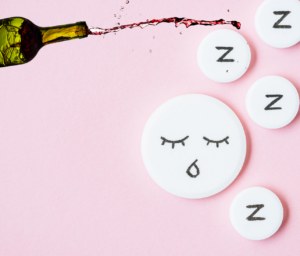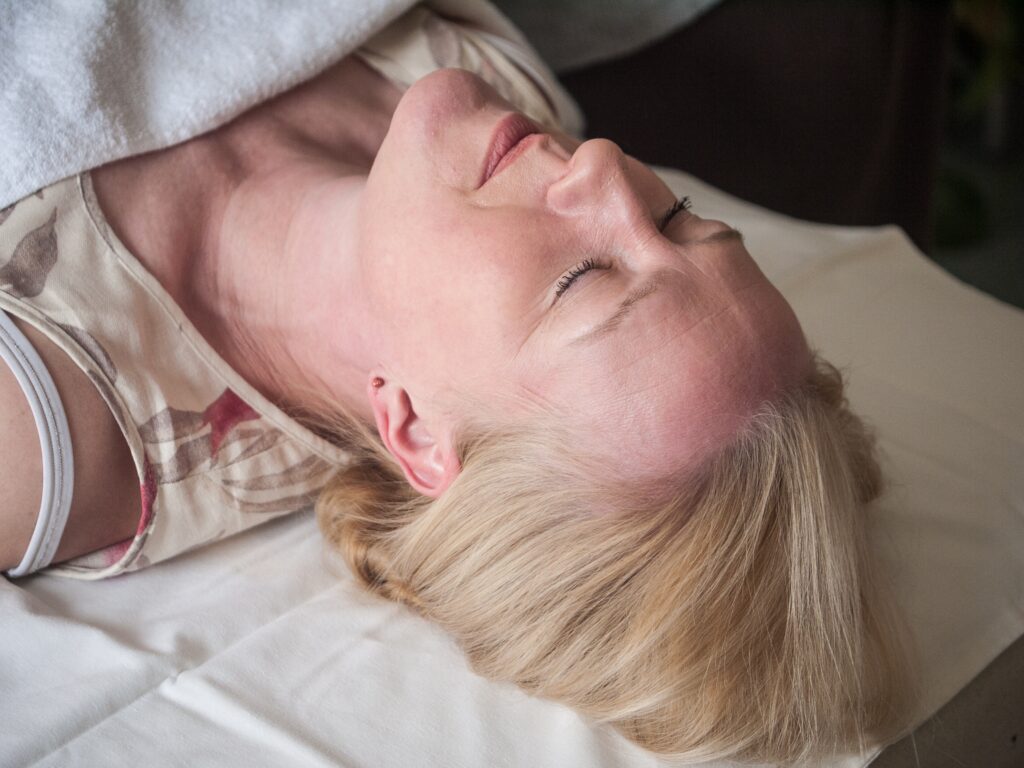Alcohol abuse is a pervasive and deeply concerning issue that affects various aspects of life, including physical health, emotional well-being, and relationships. Among the many negative consequences, its impact on sleep patterns has recently come to the forefront of scientific study.
The consumption of alcohol might initially induce feelings of relaxation and even promote a sense of drowsiness, leading some to believe it can aid in falling asleep. However, as research increasingly shows, excessive or chronic alcohol consumption can lead to disrupted sleep patterns, poor sleep quality, and other sleep-related problems.
Alcohol abuse is connected to negative sleep patterns and has negative long-term effects on overall health. Understanding the interplay between alcohol and sleep is essential in recognizing the full spectrum of risks associated with alcohol abuse and offers a comprehensive insight into the importance of intervention and treatment.
Understanding the Relationship Between Alcohol and Sleep

Firstly, alcohol is known as a “sedative.” This means that it can induce feelings of relaxation and sleepiness. However, these effects are short-lived. As the body begins to metabolize the alcohol, these sedative effects wear off, often leading to disrupted sleep in the second half of the night.
Alcohol interferes with the sleep cycle and particularly affects the rapid eye movement (REM) stage of sleep, which is essential for memory, learning, and mood regulation. REM sleep usually happens 90 minutes after we fall asleep. It’s the stage of sleep when people dream, and it’s thought to be restorative. Disruptions in REM sleep may cause daytime drowsiness, poor concentration, and rob you of needed sleep.
Alcohol also promotes snoring and sleep apnea, a serious disorder where breathing repeatedly stops and starts, causing fragmented sleep. Alcohol relaxes the muscles in the body. This includes the muscles in the throat, which can collapse as a result, blocking the airway.
Chronic alcohol use can also result in sleep conditions like narcolepsy, sleep apnea, and snoring. The effects on sleep can increase other health issues related to alcohol abuse, like depression, liver disease, and heart issues.
So, if you’re relying on a glass of wine or a pint of beer to help you nod off at night, you may want to reconsider. It’s a short-term solution that can lead to long-term sleep problems.
Sleep Stages and Their Measurement
There are five sleep stages. Each serves a purpose. EEGs measure brainwave activity.
- Stage 1 is light sleep. We drift in and out. Alcohol affects this stage.
- We relax in Stage 2. Alcohol increases duration here.
- Stages 3 and 4 are deep sleep. Heart rate, breathing and muscle activity slow. Alcohol reduces time spent here.
- REM (Rapid Eye Movement) sleep is characterized by brainwave activity. Dreams occur here. Alcohol may suppress REM sleep, leading to more awakenings.
Effects of Alcohol on Sleep
Alcohol abuse can have significant effects on sleep patterns, which can, in turn, impact our overall health and well-being. Alcohol is a depressant which means it can make individuals who consume it sleepy and even fall asleep faster, however, alcohol has an impact on the quality of sleep and amount of sleep an individual gets when intoxicated. Here are some of the stages of sleep and how they are changed by alcohol:
- Stage 1 may become shorter, with less restful sleep.
- Stage 2 may increase, leading to more sleep spindles, but this does not necessarily make for better quality sleep.
- Stages 3 & 4 may be blocked, causing less deep sleep.
- Also, REM sleep might reduce, resulting in fewer dreams and worse sleep quality.
Studies have shown that even a small dosage of alcohol before bedtime can negatively affect sleep by:
- Increasing nighttime awakenings by 36%
- Reducing nighttime melatonin production by 15%
- Inhibiting the release of growth hormone by up to 75%
- Alcohol consumption can make sleep disorders like sleep apnea and snoring worse.
Therefore, it is recommended to avoid alcohol before bedtime to get a good night’s rest.
Changes in Sleep Architecture
Alcohol can change how we sleep. It can cause us to fall asleep quickly, but the quality of sleep is not so good. We will wake up more often and sleep lighter. It can also stop us from getting the REM sleep we need for our brain. This can make us tired during the day and not able to think and learn properly. So, it’s best not to drink alcohol before bedtime, especially if we already have a sleep problem.
These facts show that drinking alcohol can hurt our sleep. This makes it important to have healthy sleep for our mental and physical health.
Disrupted REM Sleep
Alcohol consumption has been found to disrupt REM sleep. This can lead to negative effects on overall sleep quality. Research has shown that alcohol suppresses the stage of the sleep cycle where most dreaming occurs. This can make people feel groggy and not well-rested, even after a full night’s sleep.
Chronic alcohol abuse has also been linked to various sleep disorders, such as insomnia and sleep apnea. These can up the risk of other health issues like obesity, heart disease, and depression.
To better sleep quality, it is recommended to avoid drinking alcohol before bedtime. Instead, try things like herbal tea or warm milk to promote relaxation and improve sleep quality. These small changes can have a great impact on one’s overall health and wellbeing.
Furthermore, it is key to remember that people can react differently to alcohol consumption. Women and seniors may be more at risk of REM sleep disruption with alcohol use. Thus, it is important to be aware of how alcohol affects your sleep patterns and overall well-being.
Increased Sleep Disruptions
Alcohol has been linked with sleep disturbances. It affects Rapid Eye Movement (REM) sleep, where we dream and restore cognitive functions. This reduces REM sleep, leading to grogginess and unrestful sleep.
Plus, alcohol makes throat muscles relaxed, which increases snoring and the probability of sleep apnea. Unexpected awakenings make it hard to fall back asleep, too.
To get a better night’s rest, it’s best to limit alcohol consumption before bed. The facts and figures prove this point – alcohol and sleep do not go together.
Predictive Relationship between Sleep and Relapse in Alcoholics
Sleep disturbances and disorders are commonly reported in individuals with Alcohol Use Disorder (AUD), both during active drinking periods and in recovery. The relationship between sleep and relapse in alcoholics is complex and bidirectional.
On one hand, chronic alcohol use can severely disrupt normal sleep patterns, causing problems like insomnia, sleep apnea, and an altered sleep-wake cycle. These sleep disturbances often persist during the initial stages of abstinence, and in some cases, might even worsen. The resultant sleep deprivation can increase cravings for alcohol, heighten stress, impair cognitive function, and reduce an individual’s ability to resist drinking, thereby increasing the risk of relapse.
On the other hand, improved sleep quality and the treatment of sleep disorders can support recovery from AUD. Consistent, restful sleep can enhance physical and mental health, reduce cravings, and boost mood and cognitive function, thus promoting sobriety and reducing the risk of relapse.
This underscores the importance of addressing sleep problems in individuals recovering from AUD. Interventions could include good sleep hygiene practices, cognitive behavioral therapy for insomnia (CBT-I), and, when necessary, the treatment of underlying sleep disorders. It’s crucial to note that many traditional sleep aids are not suitable for people in recovery from AUD due to their potential for dependence and their interaction with alcohol, making non-pharmacological treatments and careful medical supervision important.
Research into the predictive relationship between sleep and relapse in alcoholics is ongoing, and further studies will likely provide deeper insights into how best to leverage sleep improvements in the treatment of AUD.
1 in 10 alcoholics have sleep apnea.
Treatment Implications for Managing Sleep Problems in Alcohol Treatment
Addressing Sleep Issues in Alcohol Treatment
Individuals in alcohol treatment often have sleep troubles such as insomnia, nightmares, and tiredness. Addressing these issues is vital for successful treatment. Screening and assessing patients at intake is very important. It’s necessary to plan a personal treatment to tackle sleep problems, this may include meds, therapy, sleep hygiene edu, and relaxation methods. Disorders like anxiety and depression that can cause sleep issues must be dealt with. Medication use must be monitored and dosages changed if needed to limit dependence. Evaluating patients’ sleep quality regularly to measure progress and tailor treatment is also important. Addressing sleep troubles in alcohol treatment can enhance recovery chances and help manage the effects of alcohol on sleep patterns.
Approaches for Managing Sleep Problems
Sleep issues are a big concern during alcohol treatment. Managing them well is critical for successful recovery. Several approaches exist for this. Cognitive-behavioral therapy (CBT) can help to identify and modify thoughts and behaviors that cause insomnia. Benzodiazepines or nonbenzodiazepine hypnotics may also be prescribed. Relaxation techniques, like mindfulness meditation, breathing exercises, and yoga, can help reduce symptoms.
Sleep hygiene practices are essential. Adhere to regular sleep schedules, reduce caffeine and alcohol, and create a good sleep environment. It’s vital to address sleep problems during alcohol treatment and get professional help. Recent data shows that lifestyle changes and CBT are very successful in managing sleep problems during alcohol treatment.
Final Thoughts On Alcohol And Sleep Disorders
Alcohol abuse can disrupt sleep patterns. It can cause long-term health issues such as insomnia, sleep apnea, and even premature death. It also increases the risk of accidents or injuries. People with alcohol abuse tend to have a lower quality sleep, shorter sleep duration, and more night awakenings.
Alcohol may make one feel sleepy and relaxed at first. But eventually, it messes up the body’s natural sleep cycle. Chronic alcohol use can also cause sleep problems, worse insomnia, and reduced cognitive functioning during withdrawal. It’s important to get proper medical detox for alcohol addiction to fix sleep patterns and stop health damage.
Five Facts About Alcohol Abuse and Its Effects on Sleep Patterns:
- ✅ Alcohol can disrupt the natural sleep cycle, leading to difficulty falling asleep and staying asleep. (Source: National Sleep Foundation)
- ✅ Heavy drinking can lead to sleep disorders such as insomnia and sleep apnea. (Source: Sleep Foundation)
- ✅ Chronically disrupted sleep patterns can contribute to mental health issues such as anxiety and depression. (Source: Harvard Medical School)
- ✅ Sleep disturbances caused by alcohol can impact cognitive function, memory, and learning ability. (Source: American Psychological Association)
- ✅ Treatment for alcohol abuse, including quitting alcohol use, can improve sleep quality and reduce the risk of sleep-related disorders. (Source: National Institute on Alcohol Abuse and Alcoholism)
FAQs about Alcohol Abuse And Its Effects On Sleep Patterns
What is alcohol abuse and how does it affect sleep patterns?
Alcohol abuse refers to the excessive consumption of alcoholic beverages, leading to negative physical and psychological effects. One of the main effects of alcohol abuse is disrupted sleep patterns. While alcohol initially has a sedative effect, it ultimately disrupts the normal sleep cycle, leading to poor quality sleep, nighttime awakenings, and daytime drowsiness.
How does alcohol affect REM sleep?
Alcohol consumption can disrupt Rapid Eye Movement (REM) sleep, which is the stage of sleep where most dreaming occurs. Alcohol may increase the time it takes to fall asleep, but it reduces the amount of time spent in REM sleep, leading to vivid and disturbing dreams, as well as sleep fragmentation.
What are the long-term effects of alcohol abuse on sleep patterns?
Long-term alcohol abuse can lead to chronic sleep disturbances, including insomnia, frequent awakenings, and daytime fatigue. This can contribute to a range of negative health effects, including depression, anxiety, and decreased cognitive functioning.
How can alcohol abuse be treated to improve sleep patterns?
Alcohol abuse can be treated through various therapies like cognitive-behavioral therapy, medication, and residential treatment programs. Engaging in healthier habits like exercise, good diet, and stress management can also be helpful in promoting better sleep patterns.
Can sleep disorders increase the risk of alcohol abuse?
Yes, sleep disorders such as sleep apnea or insomnia can increase the risk of alcohol abuse as individuals turn to alcohol to self-medicate their sleep issues. It is important to address any underlying sleep disorders through proper medical treatment to avoid potentially harmful behaviors like alcohol abuse.
Why is regulating sleep important for those in alcohol addiction recovery?
Regulating sleep patterns is crucial for those in alcohol addiction recovery because lack of sleep can trigger physical and psychological cravings for alcohol. Restorative sleep helps in reducing anxiety and stress levels, ultimately aiding in alcohol addiction recovery.
- , , , . (2018) Representativeness of patients enrolled in a primary care clinical trial for heavy/problem substance use. Substance Abuse 39:4, pages 469-475.
- Stein, Michael D., and Peter D. Friedmann. “Disturbed Sleep and Its Relationship to Alcohol Use.” Substance Abuse, vol. 26, no. 1, 2005, pp. 1-13. Taylor & Francis Online, www.tandfonline.com/doi/abs/10.1300/J465v26n01_01.



